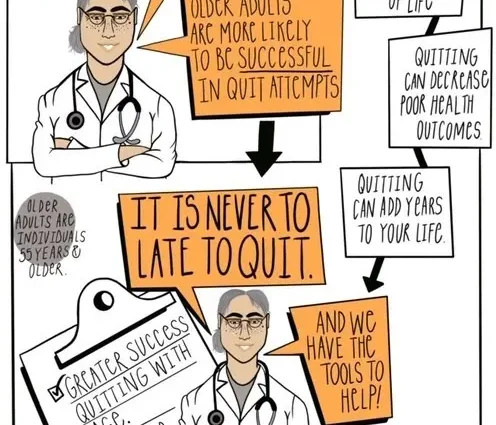Quitting smoking, even at a later age, reduces the risk of heart attack and heart attack death, according to a study presented at the European Society’s congress, which ended in Amsterdam this week.
Dr. James Min from Cornell University in New York (USA) recalled in a media meeting that smoking is a known risk factor for various diseases, including ischemic (or coronary) heart disease and the so-called serious adverse cardiac events. These include not only death due to heart disease, but also non-fatal infarction.
His team followed the fate of over 13 people for two years. patients from nine countries in Europe, East Asia and North America. Their data was collected as part of the register with the acronym CONFIRM. All patients underwent an examination of the coronary arteries using CT angiography, which combines the traditional method of angiography with computed tomography. On this basis, the advancement of coronary atherosclerosis and the degree of their narrowing were assessed.
The average age of the respondents was 56 years. 55 percent of them have never smoked, 24 percent. quit smoking at least three months before angiography, and 21 percent. they were still smokers.
They found that severe narrowing of the arteries was as common in people who quit smoking as it was in current smokers. The likelihood of major narrowing of the three main coronary arteries was twice as high in both groups as compared with those who had never smoked.
However, current smokers were much more likely to experience serious cardiac events compared to never-smokers and those who had quit. Their risk of having a heart attack or dying from heart disease was twice as high as in the non-smoking group, while ex-smokers had almost comparable risk.
Our study proves that it is never too late to quit smoking, assessed Dr. Min.
He also noted that further monitoring of the patients’ fate from the CONFIRM registry will allow to assess whether the positive effects of quitting smoking will persist beyond two years. The researchers also want to see if how many years a person has smoked and how many cigarettes a day has an impact on the degree of narrowing of the coronary arteries and on the benefits of quitting smoking.
It is now known that starting smoking at an earlier age is associated with a reduction in life of around 10 years, and a quarter of heavy smokers do not live to the age of 70, ”recalled Dr. Jonathan Emberson from the University of Oxford (UK). Research shows that quitting tobacco addiction at the age of 30 allows us to regain 10 years of life when we do it at 40 – we gain 9 years, and at 50 and 60 – 6 and 3 years, respectively – the researcher explained.
However, a significant proportion of smokers live in their 70s. Little is known about the benefits of quitting smoking in this group.
The team of dr. Emberson analyzed data collected from 7 men with an average age of 77 years.
It turned out that within 15 years of observation, smokers – compared to never-smokers – had 50 percent. higher risk of death from various causes, mainly due to cancer (by 74% higher risk) and respiratory diseases (risk higher by 140%, i.e. more than twice), but also due to cardiovascular diseases (by 34%). By contrast, men who quit smoking were 15 percent. more likely to die, mainly from cancer and respiratory diseases. “The risk of cardiovascular death returned to smoking levels much faster,” noted Dr. Emberson.
Closer analysis found that those who quit their addiction at least three decades ago had a comparable risk of death to never-smokers. If quitting had happened two decades earlier, the risk was a fifth (22%) higher, while those who quit less than 10 years earlier had a two-fifth (44%) higher risk.
The researchers calculated that after the age of 70, life expectancy was 4 years shorter for smokers compared to non-smokers – after seventy they had 18 and 14 years of life respectively. For ex-smokers, life expectancy was shorter by 2 years.
Our research shows that even if a smoker lives to 70, they still lose four years compared to a person who has never smoked. In addition, it has a worse quality of life, concluded Dr. Emberson.
He also noted that these differences were related to a relatively small number of cigarettes – smokers in his study smoked an average of nine cigarettes a day.
Sometimes you meet a smoker who says: + My grandfather smoked like a chimney and he lived to be eighty or ninety, so I don’t have to worry +. However, recent research shows that quitting the addiction brings benefits at any age, said Dr. Joao Morais of St. Andrew in Leiria, Portugal.
The research presented in Amsterdam by Dr. Yasuaki Dohi from the University of Nagoya City (Japan) shows that as early as eight weeks after quitting smoking in 40-year-olds, the endothelium of arteries damaged by tobacco smoke is being repaired. However, this is too short a period to reduce the risk of a heart attack.
Joanna Morga (PAP)










